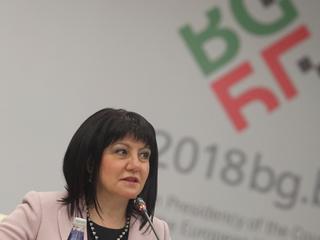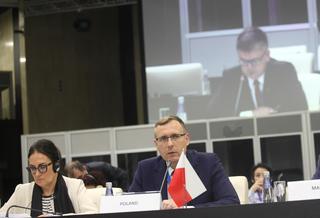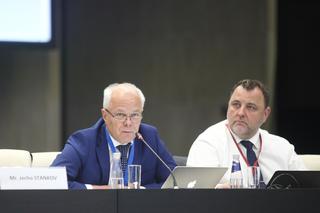In 2018, we look forward to seeing the results of regional cooperation in the field of energy infrastructure to secure the supply in Southeast Europe. This was stated by the Head of Unit for Networks and Regional Initiatives of the European Commission's Directorate-General for Energy, Catharina Sikow - Magny to the participants in the meeting of the Chairpersons of the Energy Committees of the Parliaments of the EU in Sofia. She added that energy infrastructure will also be among the topics to be discussed at the forthcoming EU - Western Balkans Summit initiated by the Bulgarian Presidency of the Council of the EU.
Work on the priorities of regional cooperation on energy infrastructure and secure supply for Southeast Europe began three years ago and now is a good time to draw balance of what has been achieved, said Catharina Sikow - Magny. She stressed that we are still largely dependent on one source of natural gas, which leads to higher prices for the consumer. If this region has access to natural gas at prices comparable to those in Western Europe, we will be able to save 4 billion euros per year from gas bills, Catharina Sikow-Magny added.
The Head of Unit for Networks and Regional Initiatives at European Commission's Directorate-General for Energy recalled that cooperation in the field of energy infrastructure started in 2015 and efforts are mainly focused on the diversification of natural gas sources. Seven priority projects have been defined to be implemented in the region, three of which will open the Southern Gas Corridor and will help the supply of natural gas from Azerbaijan. They are already in an advanced phase, Catharina Sikow - Magny said. The corridor is expected to be launched in the coming months, she added. In her words, there are visible results in the construction of the corridor connecting Bulgaria, Romania, Hungary and Austria.
The package “Clean energy for all Europeans” will set the necessary framework for Europe to lead the rapid transition to clean energy, noted Catharina Sikow-Magny. We are grateful to the Bulgarian Presidency for the fact that on many of the legislative proposals a lot of work is being done, she said.
The Member of the European Parliament and its Industry, Research and Energy Committee (ITRE) Vladimir Urutchev pointed out that the EU is the largest energy importer in the world. Gas supplies account for one third of all European gas imports, and for several Member States Russia is a major source of gas, he said. This dependence is essential, and therefore any international development can affect security of supply, the MEP added. In his words, these challenges have led to a single EU response, which adopted a strategy and took actions to create a European Energy Union.
Vladimir Urutchev pointed out that a new revolutionary energy transition should be made in Europe, whereby fossil fuels should be gradually phased out as sources. The new engine will be powered by electricity produced in a clean way, he said. According to Vladimir Urutchev, there are two main challenges for the realization of this transition - the creation of a single electricity market, which requires a well-integrated trans-European network and a corresponding policy framework. Of the 173 projects included in the list of projects of common interest to the EU, 106 are in the field of electricity, the MEP stressed during his speech in the first session of the forum - Energy Infrastructure and Secure Supply.


